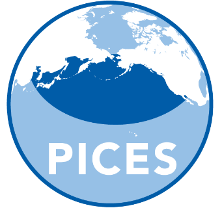A New PICES Working Group on Climate Extremes and Coastal Impacts in the Pacific

It has been recognized that the risk of more frequent and more severe extreme events within the Pacific domain is increasing. For example, a series of Marine Heat Waves (MHW) has occurred in the eastern North Pacific over the past five years, with substantial ecological and socioeconomic impacts on the west coast of North America. Meanwhile, in the western North Pacific Ocean near Japan, another long-term MHW occurred in the Oyashio region from 2010 to 2016, with significant impacts on local communities through changes in fish species available for catch. Thus, there is a clear need to better understand the physical drivers and assess the predictability of MHWs and other extreme events, such as heavy rainfall, typhoons, and coastal inundation, and to be more prepared to resolve the socioeconomic impacts resulting from these events.
To this end, a new PICES Working Group (WG-49) on Climate Extremes and Coastal Impacts in the Pacific is under development, with the following terms of references:
-
Develop a census of historical climate extreme events around the Pacific Rim, to assess their characteristics, identify potential climate and ocean drivers, and catalog their ecological and socioeconomic consequences.
-
Focus on case studies (e.g., MHWs) for a full exploration of drivers, predictability, ecological and societal impacts, and dissemination of information for actionable solutions.
-
Assess the predictability of climate extremes and establish leading indicators to mitigate impacts on coastal communities.
-
Develop models to predict how existing ecosystem services may be affected by climate extremes and what effects those would have on different human communities.
-
Identify a set of social, economic, and cultural indicators that account for the suite of human dimension impacts from climate extremes.
-
Work with experts in science communication and participants in the UN Decade of Ocean Science (e.g., SMARTNET) to develop and disseminate information and products related to the drivers, predictability and impacts of climate extremes.
-
Identify and engage partners in the prioritization of activities and deliverables.
CLIVAR appreciates the collaboration with PCIES through the previous working group on “Climate and Ecosystem Predictability” (WG-40), and recognizes the increasing needs of collaborations across science organizations with different focuses. We are looking forward to collaborating with PICES on the climate extremes and coastal impacts in the Pacific in the future.
For more information about this working Group, please refer to: https://meetings.pices.int/members/working-groups/wg49.











Add new comment